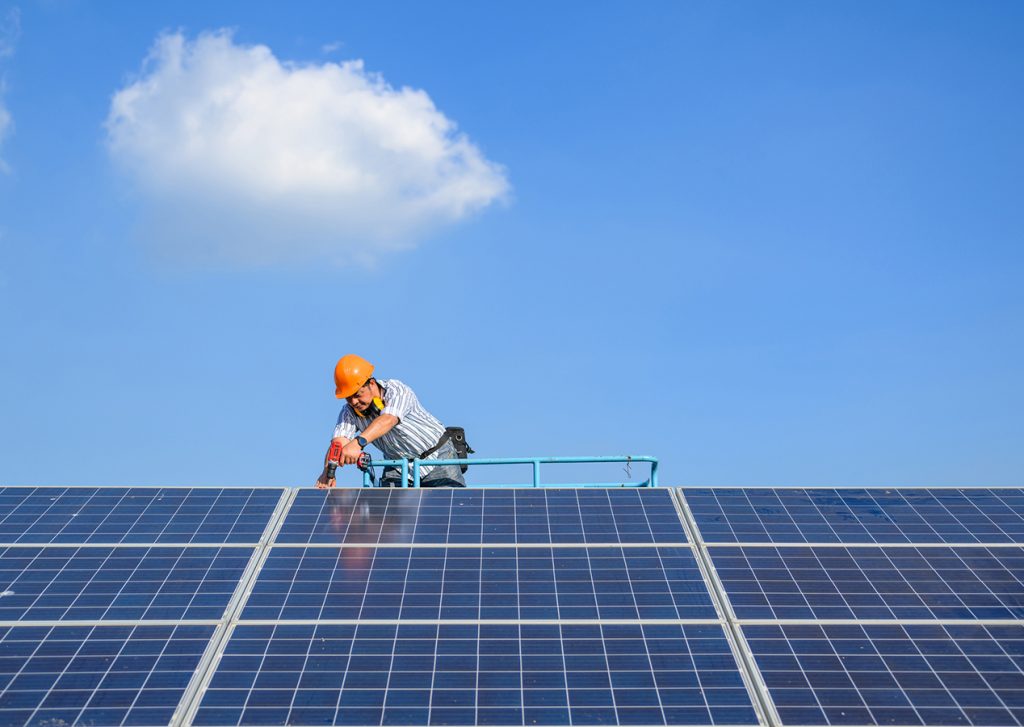Why Simply Solar Illinois is the Top Choice for Renewable Energy
Why Simply Solar Illinois is the Top Choice for Renewable Energy
Blog Article
Just How Solar Energy Can Help You Save Cash and Reduce Your Carbon Footprint
The assimilation of solar power right into your energy profile presents a compelling chance for both economic savings and ecological stewardship. As different federal government incentives end up being available, the inquiry develops: just how can one effectively navigate the preliminary financial investments and continuous advantages of solar innovation to take full advantage of both economic and ecological gains?
Understanding Solar Energy Savings
While the shift to solar power commonly involves a preliminary financial investment, understanding solar power financial savings is critical for house owners and companies alike. Solar power systems can significantly decrease power bills by using the sun's energy, converting right into substantial long-term economic benefits. By generating their own electrical energy, customers decrease reliance on grid power, which goes through rising and fall rates. These savings can accumulate in time, typically leading to a rapid return on investment.
Moreover, solar energy systems may qualify for various economic motivations, including tax obligation debts and discounts, additionally improving their cost-effectiveness. The availability of net metering permits customers to offer excess energy back to the grid, developing an extra income stream. These variables add to the overall savings linked with solar power.

Along with direct financial savings, solar power provides the added benefit of enhancing property value. Homes geared up with solar panels are commonly a lot more eye-catching to purchasers, as they promise lower energy prices - Simply Solar Illinois. Recognizing these components is crucial for any individual taking into consideration solar power, as it highlights not simply the prospective monetary gains, however also the more comprehensive ecological and financial advantages of adopting renewable power options
First Prices vs. Long-Term Perks
When assessing solar power, it is necessary to consider the preliminary expenses versus the lasting benefits. The upfront financial investment for solar panels, setup, and associated equipment can be significant, commonly ranging from $15,000 to $30,000, depending on the system dimension and home power demands. This initial expense may deter some home owners; nevertheless, it is important to think about the possible cost savings over time.
As soon as set up, solar energy systems can substantially decrease and even eliminate month-to-month electrical energy bills, causing substantial lasting financial advantages. Studies suggest that homeowners can conserve anywhere from $10,000 to $30,000 over the lifespan of their planetary system, generally 25 years. In addition, numerous states offer rewards, tax obligation credit scores, and rebates that can counter preliminary costs, making solar extra easily accessible.

Minimizing Your Carbon Impact
Decreasing your carbon footprint is a vital consideration in today's environmentally aware society, and embracing solar energy is just one of the most effective strategies to achieve this goal. Solar power is a clean, renewable energy that considerably diminishes dependence on nonrenewable fuel sources, which are significant contributors to greenhouse gas exhausts.

In addition, the extensive fostering of solar innovation urges the advancement of green tasks and supports innovations in power storage space and effectiveness. The more individuals and organizations spend in solar power, the higher the collective decrease useful content in carbon emissions, cultivating a cleaner environment for future generations.
Government Rewards and Discounts
Adopting solar energy not only profits the environment however can additionally result in significant monetary cost savings, especially with the schedule of government rewards and discounts. Various government, state, and neighborhood programs are developed to urge property owners and organizations to purchase solar power systems, making the shift extra economical.
Among the most noticeable incentives is the Federal Financial Investment Tax Obligation Credit History (ITC), which allows planetary system proprietors to deduct a significant percentage of the installment costs from their government taxes. This reward has actually been essential in decreasing the ahead of time expenditures related to solar power systems. In addition, lots of states supply their very own tax credit ratings, grants, and discounts that can further boost financial savings.
Furthermore, some neighborhood governments provide residential property tax obligation exemptions for this solar setups, guaranteeing that house owners do not deal with raised real estate tax as a result of their renewable resource investments. Energy firms might likewise provide incentives, including internet metering and feed-in tolls, which enable solar power individuals to offer excess power back to the grid.
Choosing the Right Solar System
Picking the ideal planetary system is essential for making the most of energy efficiency and financial benefits. The choice pivots on a number of aspects, consisting of power demands, budget, and offered area. House owners must start by analyzing their electricity consumption to establish the system size required for optimal performance.
Next, consider the different types of solar technologies available. Simply Solar Illinois. Photovoltaic (PV) panels are the most usual, transforming sunshine straight right into electrical energy, while solar thermal systems focus on heating water. Each type has distinctive benefits relying on private needs
Budget plan factors to consider are also paramount. First he has a good point setup costs can vary significantly, so it is very important to compare quotes from numerous suppliers and explore funding choices. Government motivations and rebates can additionally reduce the monetary concern, making planetary systems extra easily accessible.
Conclusion
The ecological advantages of solar energy add to sustainable techniques important for combating environment modification. Government rewards boost the usefulness of solar modern technology fostering, urging a shift in the direction of a cleaner, a lot more economically effective energy source.
Report this page